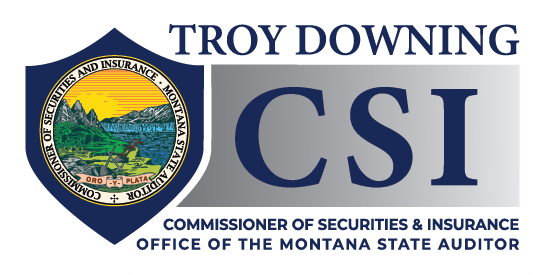By CHAD SOKOL
Daily Inter Lake | May 4, 2021 12:00 AM
A bill that would give Montana officials the power to license and regulate pharmacy benefit managers — the middlemen that negotiate drug prices and determine which medications are covered by health insurers — is headed to Gov. Greg Gianforte’s desk.
Proponents say the measure would shine a light on a powerful yet obscure part of the health-care industry and create opportunities to address skyrocketing drug prices.
Troy Downing, Montana’s state auditor and commissioner of securities and insurance, held lengthy discussions and led the drafting of Senate Bill 395 after the U.S. Supreme Court clarified late last year that states can regulate pharmacy benefit managers. The proposal had unanimous support in the Senate and cleared the House on a 98-2 vote.
In an interview with the Daily Inter Lake, Downing said the Supreme Court decision, which stemmed from a similar legislative proposal in Arkansas, “opened a floodgate of possibilities” for Montana to pursue its own regulations.
Pharmacy benefit managers develop the “formularies” that list which drugs health plans will cover; they also negotiate wholesale prices and facilitate reimbursements to pharmacies for drugs they dispense. Those formularies can have huge implications for a drug’s profitability, so manufacturers offer rebates and other incentives to pharmacy benefit managers to include their products on the lists.
But without financial data, regulators can’t know how much money is being exchanged in the middle ground between drug makers and pharmacies — or if any of those cost savings are being passed on to consumers.
“For the most part, it’s a black box and we’re trying to peer inside of it,” said Downing, a Republican.
THE BILL, which was sponsored by Sen. Greg Hertz, R-Polson, would require pharmacy benefit managers to obtain Montana business licenses, because state officials currently don’t know how many of them are operating in the state.
It also would require pharmacy benefit managers to disclose information about wholesale drug prices, as well as the aggregate amounts they receive in rebates and other incentives.
“They are required to list not just the rebates but all remuneration — any kind of fee or money that they’re receiving from the manufacturers or elsewhere for running these programs,” Downing said.
“Once you know how much money is in the system, and you understand what’s going where and who’s making how much, that gives you a good foothold to start negotiating better contracts and allow market forces to start pushing prices down,” he said.
Lastly, Downing said, the bill would strengthen penalties for pharmacy benefit managers that violate “maximum allowable cost” rules stipulated in their contracts. And it would require pharmacy benefit managers to provide accessible pharmacy networks that don’t force patients to drive long distances to pick up their prescriptions. Both of those concerns were raised by Montana pharmacists who testified in support of the legislation.
Gianforte’s health-care policy adviser, Charlie Brereton, also spoke in support of the bill during a Senate committee hearing in late March, saying the governor’s office had participated in the drafting of the legislation, and that it aligns with Gianforte’s goal of lowering prescription drug prices.
“We set out, ultimately, to craft legislation that provides our state auditor with the tools to obtain information about the routine and oftentimes unknown practices of pharmacy benefit managers,” Brereton said, “and, most importantly, to know which pharmacy benefit managers are doing business here in Montana.”
The bill received only “soft” opposition from industry representatives, who said they welcome transparency but took issue with certain details and called for amendments.
“Pharmacy benefit managers save health plans, and ultimately the consumer, billions of dollars nationwide in this country every year. Without pharmacy benefit managers, I can assure you … our rates would be going up a lot,” Helena lawyer Bruce Spencer told the committee on behalf of Express Scripts, a pharmacy benefit manager owned by Cigna.
“We help keep drug prices down, so we do good,” Spencer said. “Are there problems in the process? I’m not going to deny that.”
A PREVIOUS bill that sought to place limits on pharmacy benefit managers failed in 2019 when it was vetoed by then-Gov. Steve Bullock, who voiced concern it would affect only a sliver of the health insurance market. An effort to override the veto failed.
Downing said the previous effort was limited because, prior to the Supreme Court ruling, it wasn’t clear that states had the authority to regulate pharmacy benefit managers. He said the new legislation is a major first step that could help identify problems and potential solutions in the future.
“Our hope is that having that information allows us to make better choices and understand what’s going on there,” he said. “But the other big thing is, we don’t know what we don’t know. And just turning the lights on so it’s no longer an opaque black box, and understanding all the players and where all this is going, it gives us an incredible amount of information for then adjusting as we move forward.”
Bill targets skyrocketing drug prices in Montana | Daily Inter Lake
Was this helpful?
Please give us your feedback!
Please let us know how we could improve this article.
